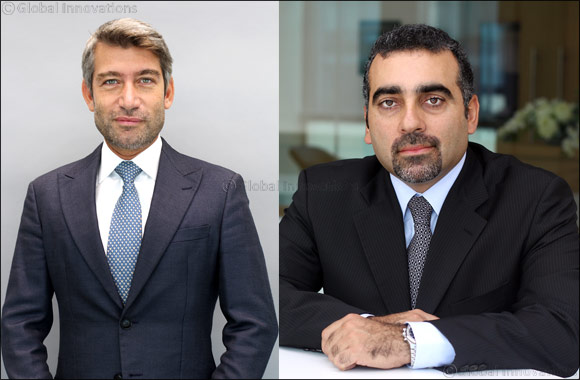
Deploying Smart Grids can help Saudi economy diversify from oil and gas – Booz Allen Hamilton
- Smart Grids can help lay the foundations for energy and cost-saving applications and renewable energy development in the MENA region
- The utilities sector and the society stands to greatly benefit from wider adoption of smart grid technologies in the future
- Developed countries are already leveraging smart grids to fulfill key priorities relating to energy efficiency and reliability
Jeddah, December 8, 2016: The utilities sector has historically under-invested in information technology (IT), but an increasing number of utility companies in the MENA region are waking up to the benefits of smart technology – particularly smart grids, a Booz Allen Hamilton report has found.
In Saudi Arabia, improving operational efficiency and customer service whilst contributing to the development of smart cities, is the central objective of the Kingdom’s smart grid program.
Saudi Arabia’s utilities landscape is rapidly evolving to accommodate increasing user needs, changing consumption behaviors, and the rise of big data. The demand for electricity has risen by 43% between 2009 and 2014, and is expected to have grown by another 34% by 2020 .
In its latest report, Switched On: How MENA Can Build Smart Grid Success Booz Allen states that customizing smart grid strategies to suit an organization’s objectives and mitigate challenges, while focusing on business transformation will determine the successful adoption of smart grids in Saudi Arabia.
Smart grids are a convergence of the electric power, communications and IT industries, built on the foundations of advanced metering infrastructure, or AMI—an integrated system that enables two-way communication between utilities and their customers.
Using a blend of classic electric grid with information, communication and control technologies, smart grids help utilities companies overcome many of the operating and customer service obstacles that stand in their way, thus delivering results for both companies and consumers.
The result is greater control over the production, transmission, distribution and retail of electricity, as well as increased efficiency along with the reduced consumption and cost of energy.
Dr. Walid Fayad, executive vice president at Booz Allen Hamilton MENA, says: “Utilities have traditionally been slow to adopt digital technologies, focusing instead on the operations technologies that enable their core business of generating, transmitting and distributing power. In doing so, they have typically taken a reluctant approach to IT, viewing it as a necessary evil for customer management and revenue collection.
“Increasingly, however, we are seeing that MENA utility companies are becoming open to employing smart grid technologies to manage their operations more efficiently. Smart grids provide an opportunity for the region to modernize its infrastructure and lay the foundations for renewable energy development which can help economic diversification.”
The way forward
The benefits of a smart grid are manifold, including opening up new opportunities for renewable energy production and storage. They also help cost-cutting, system upgrading and maintenance, and improve customer service to end-consumers.
Furthermore, smart grids introduce new metering, billing and payment methods, as well as greater access to, and accuracy of, data and information for customers and utilities alike.
Several developed countries are already leveraging the smart grid to fulfill a number of key priorities, which relate primarily to energy efficiency and reliability. Utilities in North America, for example, have focused on distribution automation and transmission modernization to fulfil their goals.
But alongside any digital innovation come challenges and it is imperative that utilities companies fully understand these before they develop their smart grid strategies.
Dr. Adham Sleiman, vice president, Booz Allen Hamilton MENA, says: “Utility companies must remember that smart grid is not a one-size-fits-all solution. To optimize the investment that utilities make, the smart grid must be tailored to address the specific goals and challenges faced by each organization.”
“For the region’s utilities to be successful in their smart grid strategies, they must take a more effective approach to technology selection, proofing and piloting, and focus efforts on developing solid strategies that take smart grid ambitions beyond the pilot, making tangible and lasting impact on the ground,” Dr. Sleiman concluded.
Home >> Energy and Industry Section
Saudi Arabia Assumes Leadership of Global Coral Reef Conservation as ICRI Secret ...
JHAH's Family Medicine Residents Lead Saudi Arabia's Healthcare Transformation
Benefit Cosmetics is revealing its New Brow product: Mighty Fine Brow Pen
Barcelona thrill jeddah crowd to book place in supercopa de espana final
Tanmiah Food Company Partners with Chengdu Design & Research Institute to constr ...
Hayy Matsuri Returns to Hayy Jameel to Celebrate 70 Years of Saudi-Japan Relatio ...
Mesmerizing Shows and Cash Prizes at Mercato During Dubai Shopping Festival
Dorsch Selected as the Supervision Engineering Consultant for Saudi Arabian Nati ...
'thank you' – ac milan revel in riyadh support as they celebrate incredible ea s ...
SHOOTING ON WFP CONVOY IN GAZA
From world-class polo to family entertainment, 2025 Richard Mille AlUla Desert P ...
CASIO celebrates 50-year-long watchmaking heritage with exclusive anniversary co ...
Two years in Saudi Arabia, Ronaldo is hungry for more
Turki Alalshikh announces UFC fights scheduled for February 1 as part of Riyadh ...
Riyadh welcome: first impressions count for new ac milan manager sergio conceica ...
Qatar Airways Touches Down in Abha, Its 11th Connection in Saudi Arabia
Henrikh Mkhitaryan: Riyadh feels like home for Inter Milan
Saudi Pro League outlines preparations for 2024/25 winter transfer window
Scent-sational Gifting: Top 5 Ajmal Perfumes to Celebrate the Holidays
"Discover Aseer" Hosts HIGHLANDER During First-Ever Hiking Adventure i ...


